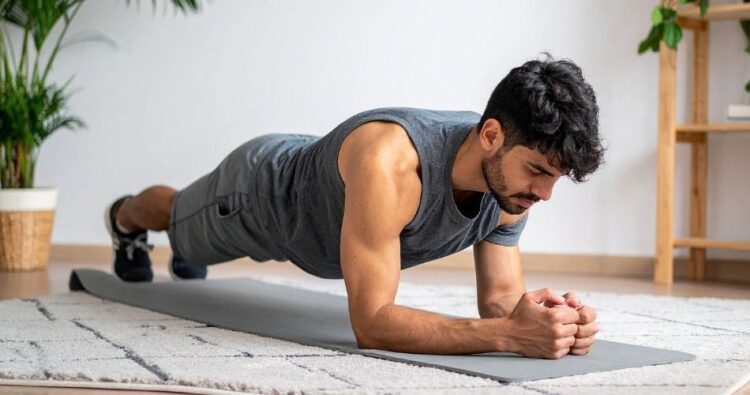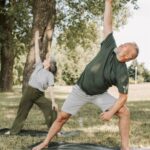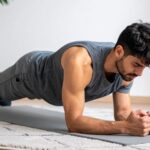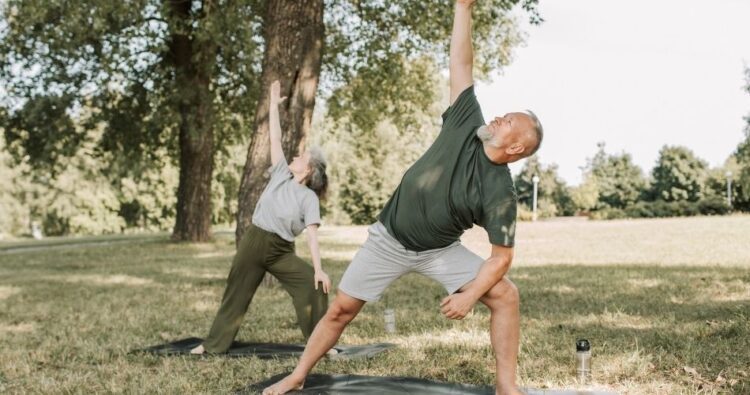Are you ready to get fit but short on time? This 30-minute full-body workout routine is designed just for you.
It’s quick, effective, and easy to do right at home—no fancy equipment needed. Imagine feeling stronger, more energetic, and confident in just half an hour a day. Keep reading, and you’ll discover simple moves that target every muscle, boost your metabolism, and deliver real results fast.
Your fitness transformation starts now.

Credit: www.pressmatik.com.br
Benefits Of A 30-minute Workout
A 30-minute workout offers many benefits for busy people. It fits easily into any schedule. It helps keep the whole body active and strong. Short workouts can also boost your energy and mood. Regular sessions improve health without taking too much time.
Time Efficiency
Thirty minutes is enough to get a good workout. You save time compared to longer exercise routines. It is easier to stay consistent with short sessions. No long breaks or excuses. Just quick, focused exercise to fit your day.
Full-body Engagement
This workout targets all major muscle groups. Arms, legs, core, and back all get worked. Full-body training helps balance strength and flexibility. It uses your time well by working many muscles at once. Your whole body grows stronger and healthier.
Boosting Metabolism
Short, intense workouts raise your metabolism fast. Your body burns more calories even after exercise. This effect helps with weight control and energy levels. A boosted metabolism supports better health and fitness. It makes a 30-minute workout very effective.
Essential Equipment For Home Workouts
Starting a full-body workout at home needs some basic tools. These tools help you exercise better and get results faster. The right equipment makes your routine easier and safer. It also keeps you motivated to stay active every day.
You do not need a gym full of machines. A few simple items can give you a great workout. Choose equipment that fits your space and budget. This way, you can build strength and burn calories effectively.
Minimal Gear Needed
A yoga mat is a great start. It provides comfort and grip for floor exercises. Resistance bands add challenge and help tone muscles. They are light and easy to store. A pair of dumbbells offers weight for strength training. Start with light weights and increase as you get stronger.
Optional Add-ons
Kettlebells add variety to your workouts. They work well for swings and squats. A jump rope boosts cardio fitness and coordination. Stability balls improve balance and core strength. Foam rollers help with muscle recovery after workouts. These extras enhance your routine but are not required.
Warm-up Exercises To Start
Starting your 30-minute full-body workout with warm-up exercises is important. Warming up prepares your body for exercise. It helps reduce injury risk and improves performance.
Warm-ups increase blood flow to muscles and raise your heart rate. This makes your body ready for more intense movements. Spend 5 to 7 minutes warming up before the main workout.
Dynamic Stretching
Dynamic stretching uses movement to stretch your muscles. It helps improve flexibility and mobility. Examples include leg swings, arm circles, and hip rotations.
These stretches gently move your joints through their full range. They wake up your muscles without causing strain. Dynamic stretches are better than static stretches before exercise.
Cardio Warm-up Moves
Cardio warm-up moves raise your heart rate quickly. Try jumping jacks, high knees, or jogging in place. These exercises increase blood flow and energize your body.
Keep the intensity low to moderate. The goal is to prepare, not tire yourself out. Cardio warm-up moves help your muscles get ready for action.

Credit: www.youtube.com
Core Full-body Exercises
Core full-body exercises target multiple muscle groups at once. They save time and boost overall strength. These moves improve balance, coordination, and endurance. Perfect for quick home workouts.
Upper Body Moves
Push-ups engage the chest, shoulders, and arms. Modify by using knees or a wall for less strain. Plank shoulder taps strengthen the shoulders and core. Dumbbell rows build back muscles and improve posture. Use water bottles if no weights are available.
Lower Body Moves
Squats tone the thighs, hips, and glutes. Keep your chest up and knees behind toes. Lunges work legs and improve balance. Step forward and lower your body slowly. Glute bridges lift and strengthen the hips and lower back.
Core Strengtheners
Planks hold the body in a straight line, building core stability. Side planks target the obliques and help with balance. Bicycle crunches work the abs and help tone the waist. Keep movements slow and controlled for best results.
Sample 30-minute Workout Plan
Here is a simple 30-minute workout plan. It targets all major muscle groups. You can do this routine at home with no special equipment. The goal is to build strength and burn calories fast. This plan is easy to follow and fits into a busy day.
Circuit Breakdown
The workout consists of three circuits. Each circuit has four exercises. The exercises work legs, arms, core, and back. Perform each exercise one after another without stopping. This keeps your heart rate up and burns more fat. After finishing one circuit, take a short break. Then repeat the next circuit.
Reps And Sets
Do 12 to 15 reps for each exercise. Aim for 3 sets of each circuit. This means you repeat the circuit 3 times. If you feel tired, lower the reps to 10. Focus on good form to avoid injuries. Move at a steady pace to keep energy steady.
Rest Periods
Rest 30 seconds between exercises. Take 1 to 2 minutes rest after each circuit. Rest helps muscles recover and prepare for the next round. Keep rest times short for better results. Use this time to drink water and breathe deeply.
Modifications For Different Fitness Levels
Adapting your workout to your fitness level helps you stay safe and get better results. This 30-minute full-body workout routine includes easy changes for beginners and tougher moves for advanced exercisers. Everyone can find a good challenge.
Adjusting exercises allows gradual improvement. Start simple and increase difficulty as you grow stronger. This keeps your body moving without pain or injury.
Beginner Adjustments
Use slower movements to control your form. Take breaks when needed. Replace jumping with stepping to reduce impact. For example, step side to side instead of jumping jacks.
Lower the number of repetitions or sets. Use a chair for support during squats or push-ups. Keep your core tight to protect your back. Focus on steady breathing throughout the workout.
Advanced Variations
Increase speed to raise your heart rate. Add weights like dumbbells or water bottles for extra resistance. Try jump squats or clap push-ups to boost power and coordination.
Include balance challenges by standing on one leg during exercises. Shorten rest times to keep intensity high. Push yourself but stop if you feel pain or discomfort.
Post-workout Stretching
Post-workout stretching is a key part of any exercise routine. It helps your muscles relax after a tough workout. Stretching also lowers the risk of injury and reduces muscle soreness. Taking time to stretch improves your overall flexibility and keeps your body healthy.
Flexibility Focus
Stretching after exercise makes your muscles longer and more flexible. This helps you move better in daily life and future workouts. Focus on slow, gentle stretches. Hold each stretch for 20 to 30 seconds. Stretch all major muscle groups, especially those you worked during the routine. This prevents stiffness and improves your range of motion.
Recovery Tips
Stretching speeds up recovery by increasing blood flow. Better circulation delivers oxygen and nutrients to tired muscles. Avoid bouncing or pushing too hard in stretches. Breathe deeply and relax into each position. Drink water to help flush out toxins. Rest well and give your body time to heal for best results.

Credit: www.youtube.com
Tracking Progress And Staying Motivated
Tracking your progress is key to staying motivated during a 30-minute full-body workout. Watching small improvements keeps you focused and eager to continue. Recording each session helps you see how far you have come. It turns exercise into a rewarding habit.
Motivation can dip over time. Tracking progress provides clear proof of your efforts. It makes the journey feel real and achievable. This boost helps you push through tough days and maintain consistency.
Setting Goals
Start with clear, simple goals. Aim for achievable targets like doing more reps or holding a plank longer. Break big goals into smaller steps. Each success builds confidence and drive. Goals give your workouts purpose and direction. They help you celebrate progress often.
Using Apps And Journals
Apps can track workouts, sets, and times easily. They remind you to stay on schedule. Many apps show progress with charts and stats. Journals work well too. Writing down how you feel or what you did makes progress real. Both tools keep you accountable and motivated every day.
Conclusion
This 30-minute workout fits easily into busy days. It works your whole body and boosts energy fast. You need little or no equipment at home. Consistency will bring steady fitness improvements. Feel stronger and healthier with each session. Try this routine and enjoy quick results.
Your body will thank you for the effort. Small steps lead to big changes over time. Start today and keep moving forward.









Leave a Reply